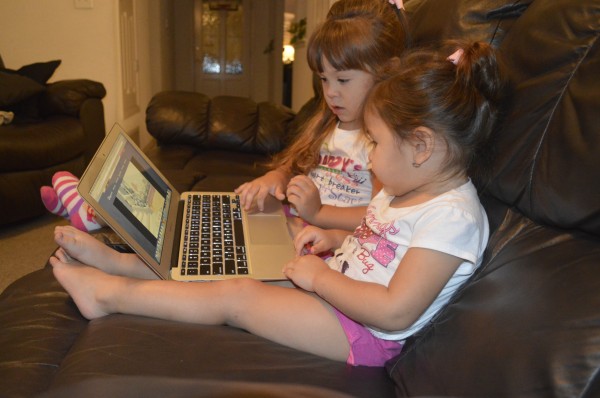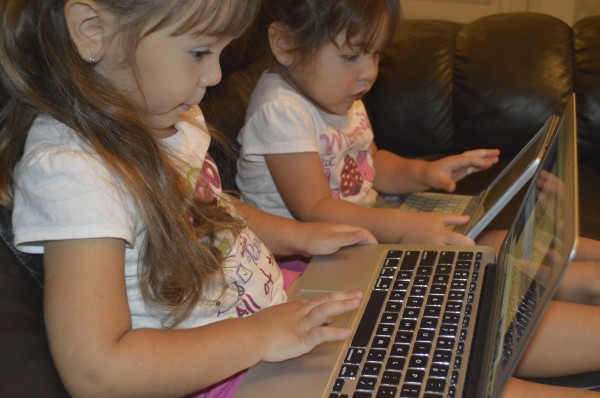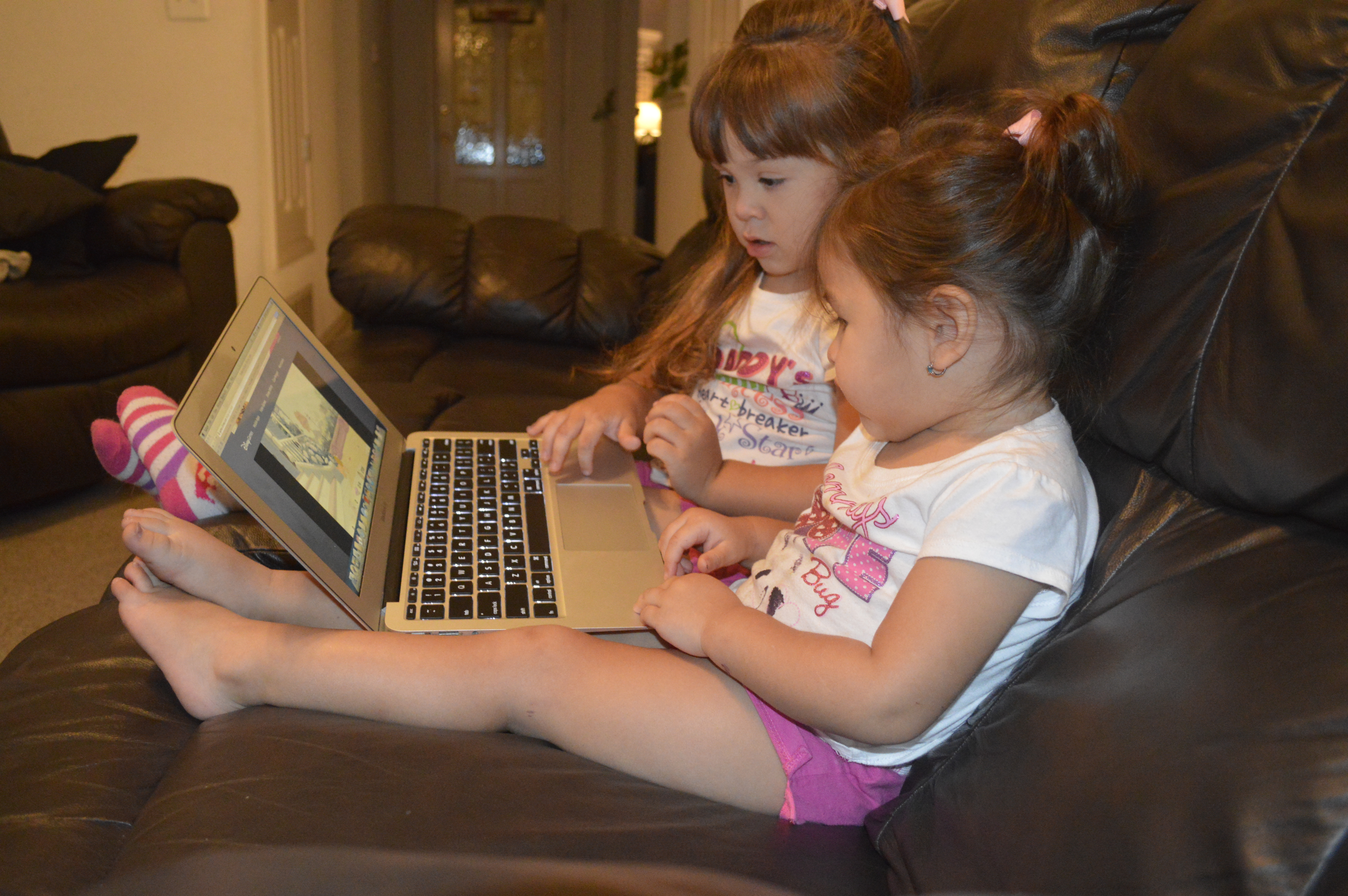EL PASO – Vanessa Canales has seen her daughters — ages 2 and 3 — give up playing with dolls and switch to spending long hours every day glued to the family’s iPad and her iPhone. And she’s all for it.

Sophia,3, idali,2, play Disney website games together. Photos by Alexsia Licon, Borderzine.com
“Parents are becoming too over protective when it comes to allowing children to incorporate technology in their play time. They must realize the importance it will have later on in their life,” said Canales, 30, a nurse at Las Palmas Medical Center.
But widespread public concern that technological devices may have negative effects on young children, such as a lack of social skill development and even obesity, have driven some of the world’s leading technology innovators to put a damper on their children’s use of mobile tools. The increased use of digital devices is leading many parents to ask how much technology is too much and how young is too young. Studies show, however, that advancements in technology can have a beneficial impact on the cognitive development of the younger generations.
Toddler tech on the rise
A study conducted by Common Sense Media, a national program dedicated to researching technology choices of children, found that nearly 38 percent of children under the age of two have used a mobile device to play games, YouTube videos and even music.
Parents are often torn between deciding which restrictions to place on their children’s digital activity because of the number of studies that show positive cognitive development through the use of technology.
The down-side to allowing children to be immersed in technology, however, is the danger lurking in the Internet – pornography, online bullying – and the potential loss of social awareness that comes from the isolation of being glued to a device.
“As long as parents are involved and supervising how their children are using technology, it can be beneficial. They must be aware that it doesn’t take away from other developmental activities such as exercise and interaction with the real world,” said John Fahey, technology implementation manager for the College of Liberal Arts at The University of Texas at El Paso.
“I allow my two daughters to pick up my phone or iPad as often as they wish. I see no harm in having them play games or watch their favorite Disney movies online. They have become experts at logging into the applications they are looking for,” said Canales, who has made the use of technological devices the source of playtime for her daughters .

Both children play on their parents’ laptops.
Canales believes that her children are developing strong cognitive skills by using technology at a young age. She said that as technology continues to advance, her children must be well versed in how to use it to do well in school. She doesn’t limit their use of digital devices because she sees no harm in working on online puzzles and playing children’s games.
Canales says because of digital tools her children possess better hand-eye coordination and a higher capacity for visual attention.
According to a survey of U.S. parents with children up to eight years old, who are active in media use, 52 percent of all children now have access to one of the newer mobile devices at home: either a smart phone, a video iPod, an iPad or other tablet device. The 2013 study, “Zero to Eight: Children’s Media Use in America,”was conducted by Common Sense Media.

Brielle, 4, sharpens her pencil while doing homework.
Limited digital access
Jasmine Velarde, 32, a biology teacher at Montwood High School and mother of Dominic, 5 and Brielle, 4, said she restricts how much technology her children use at home.
Velarde believes that technology use can be harmful to young children and is fearful of the dangers inherent in the Internet and the possibility that they might become obese from lack of exercise or fail to develop social skills.
“I want my children to enjoy their childhood and be running outdoors interacting with other children and using their imagination. A time and place will come when they can incorporate technology into their learning but for now I don’t think it is necessary for them to spend their days on tablets and phones,” said Velarde.

The Velarde children stay active riding bikes outdoors for playtime.
Velarde only allows her children to use the family’s PC, laptops or IPad and cell phones when it furthers their learning. She monitors their digital activities and has placed a passcode on the IPad and phones so they won’t play non-educational games.
A study done by the American Academy of Pediatrics (AAP), an organization of pediatricians states that by limiting screen time and offering educational media and non-electronic materials such as books, newspapers and board games, and watching television with their children, parents can help guide their children’s media experience.
Chris Anderson, editor of Wired, Evan Williams, founder of Twitter, and the late Steve Jobs, former CEO of Apple, are just a few tech industry leaders who implemented rules to restrict technology use at home among their children.
In an article published by the New York Times in September, Anderson says he has instituted time limits and parental controls on every device in his home and does not allow digital screens in his children’s bedrooms. Williams prefers to have his children read books rather than reading them on digital devices, according to the NYT article.
Finding a balance
As digital technology advances and its use grows in classrooms throughout the country, educators, parents and researchers will continue to debate the positives as well as negatives of exposing children to too digital technology.
“A strong balance between incorporating technology and physical activity into a child’s life is a very important matter that must be monitored by the parents in order to allow them to develop better cognitive development along with social skills and staying active through physical activities,” Fahey said.



This behavior will cause harm to eyesight at any age.